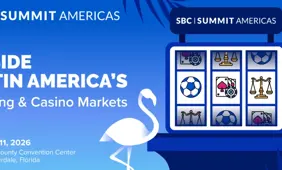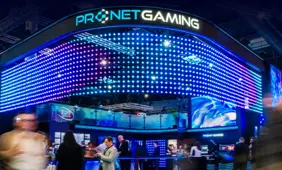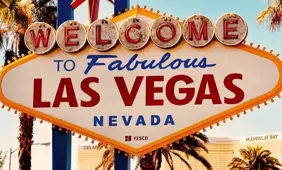California Ban Sparks Broader Fight Over Sweepstakes Casinos
Senior executives in the sweepstakes casino sector told industry peers last week that growing political and regulatory pressure on their business is increasing.

They argued that it’s driven more by competitive concerns than by shortcomings in player safety or age verification. The comments came at the Online Social Games Expo convened by the Social Gaming Leadership Alliance after sweepstakes representatives were excluded from a panel at the Global Gaming Expo.
Regulation, Rivalries, and California’s Ban
Derek Brinkman, executive product advisor at VGW – the operator behind Chumba Casino, LuckyLand Slots and Global Poker – said critics backing legislative and regulatory action are primarily seeking to limit competition. Brinkman argued sponsors of the anti‑sweeps campaign are using public concerns about consumer safeguards as a pretext to remove rivals from markets where social and video gaming have grown rapidly in recent years.
The debate was underscored by California’s Assembly Bill 831, which passed the state legislature on Sept. 12, 2025, and was signed by Governor Gavin Newsom. The law will render sweepstakes casino models illegal in California as of Jan. 1, 2026. The primary tribal backer of AB 831 was the Yuhaaviatam of San Manuel Nation (YSMN), owner of Yaamava’ Resort & Casino and the online social casino Play.Yaamava.
Tribal leaders and their attorneys say Play.Yaamava is a social casino distinct from sweepstakes operators, noting the platform uses a single in‑game currency that can lead to rewards such as retail casino credits, rather than the dual‑currency structure used by many sweepstakes sites. Opponents in the sweepstakes sector counter that AB 831’s authors deliberately used narrowly crafted language – for example, around "dual‑currency" mechanics – to exempt certain tribal social casinos while excluding independent sweepstakes operators from the market.
Industry Lines Drawn Over Regulation
Scott Crowell, a tribal gaming lawyer, has publicly argued that equating Play.Yaamava with sweepstakes sites is inaccurate, calling such comparisons unfounded. Victor Rocha, chair of the Indian Gaming Association and a vocal critic of sweepstakes gaming, has also dismissed the claim that tribal social casinos are equivalent to sweepstakes operators.
Beyond tribal sponsors, established social casino companies have been visible in state hearings this year. Light & Wonder, which operates the SciPlay social gaming business, has pointed to sweepstakes gaming as a competitive threat. In its second‑quarter investor update, CEO Matthew Wilson attributed part of SciPlay’s year‑on‑year softness to the rise of sweepstakes sites in shared markets, and said the company had seen revenue improvements in jurisdictions that took action against sweepstakes offerings.
Sweepstakes operators argue they adhere to robust age‑verification and responsible‑gaming standards that meet or exceed norms applied to real‑money online gaming, while critics characterise the model as unregulated and untaxed online gambling. That tension – consumer protection versus market access – is at the heart of legislative debates across multiple U.S. states in 2025.
More Business News
What Comes Next for Sweepstakes Casinos?
Industry observers say the current wave of action could presage a broader pattern: politically connected incumbents and tribal gaming interests pushing to preserve market share, while sweepstakes companies lobby to defend what they describe as lawful promotional models. If other jurisdictions follow California’s lead, social casino operators could see short‑term benefits, while sweepstakes firms may seek litigation, regulatory clarifications or new state‑level compromises.
Key developments to monitor include legal challenges to state bans, enforcement guidance from state gaming regulators on definitions and currency mechanics, and any federal interest in setting baseline rules for online promotions and gaming. Stakeholders from the Seminole Tribe of Florida to publicly traded social gaming firms will likely remain active in shaping outcomes, and industry groups such as the Social Gaming Leadership Alliance are expected to continue advocacy and public engagement.
For now, the dispute remains framed by two competing narratives: proponents of bans argue they are protecting consumers and tribal gaming exclusivity, while sweepstakes executives say the measures amount to targeted anti‑competitive policy designed to limit rivals’ market access.
RELATED TOPICS: Business
Most Read
Must Read
 Interviews
Interviews
Exclusive Interview: Levon Nikoghosyan Shares AffPapa Winning Formula for Successful iGaming Events
Dec 03, 2025 Interviews
Interviews








Review this New Post
Leave a Comment
User Comments
Comments for California Ban Sparks Broader Fight Over Sweepstakes Casinos